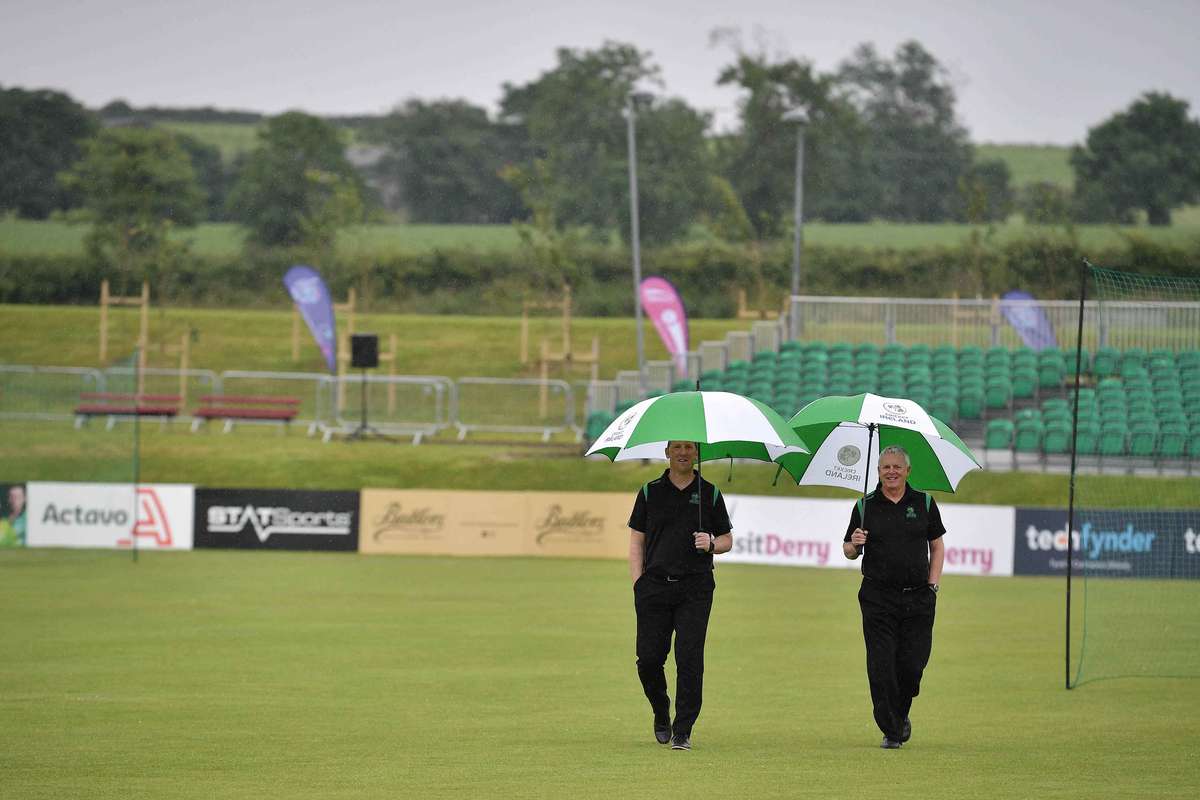What Happened
The second T20 international match between the West Indies and Ireland, scheduled for June 14, 2025, at Bready, was abandoned due to heavy rain. This match was part of a three-match series, and it marked the second consecutive game that was called off without a ball being bowled, following the abandonment of the opening match on June 12. The umpires assessed the pitch conditions but ultimately determined that there was no prospect of starting the match due to persistent wet weather. Cricket Ireland confirmed the abandonment via a statement on their social media account.
The third and final T20I of the series is set to take place on June 16, 2025, at the same venue, with both teams hoping for improved weather conditions to facilitate play. The West Indies recently faced challenges in their previous series against England, suffering 3-0 defeats in both the ODI and T20 formats. In contrast, they had a more competitive outing against Ireland in a preceding ODI series, which ended in a 1-1 draw.
Key Details
- Match Details: The second T20I was scheduled for June 14, 2025, at Bready, Ireland.
- Weather Conditions: Heavy rain led to the match being abandoned, with no play possible in either of the first two T20Is.
- Series Context: This series consists of three matches, with the first two being abandoned. The final match is scheduled for June 16, 2025.
- Recent Performance: The West Indies have struggled recently, losing all matches in their series against England, while they had a mixed performance in the ODI series against Ireland.
- Team Composition: The West Indies are missing several key players, including Brandon King, Roston Chase, and Andre Russell, which may affect their performance in the upcoming match.
Multiple Perspectives
The situation has elicited various responses from stakeholders involved in the series. On one hand, Cricket Ireland expressed disappointment over the weather disruptions, which come at a time when the organization is facing financial challenges exacerbated by the pandemic. The inability to play matches not only affects team preparation but also has implications for revenue generation through ticket sales and broadcasting rights.
On the other hand, the West Indies team, which is looking to rebuild its reputation in international cricket, views these matches as crucial for gaining experience and developing younger players. The absence of key players presents an opportunity for less experienced team members to step up and showcase their abilities. Jason Holder, the West Indies captain, has committed to the series despite having foregone participation in Major League Cricket to prioritize national duties.
Context & Background
The West Indies cricket team has historically been a powerhouse in the sport, particularly in the shorter formats. However, recent performances have raised concerns about the team’s competitiveness on the international stage. The series against Ireland is seen as an opportunity for the West Indies to regain some momentum and confidence, especially after their disappointing outings against England.
For Ireland, the matches against the West Indies are vital as they prepare for upcoming competitions, including a bid for qualification for the 2026 T20 World Cup. The Irish team is looking to solidify its standing in international cricket and improve its performance after a mixed bag of results in previous tournaments.
The weather conditions in Ireland during this time of year can be unpredictable, and the rain has already played a significant role in disrupting the series. Both teams are hoping for a favorable forecast for the final match to ensure that they can compete and gain valuable match practice.
What We Don’t Know Yet
As of now, the final match of the series is still scheduled to take place, but uncertainties remain regarding the weather conditions leading up to the game. The forecasts indicate that light drizzle may continue, which could impact the readiness of the pitch and the playing conditions.
Additionally, the impact of the players missing from the West Indies squad and how this will affect their performance in the final match is still unclear. The team dynamics and strategies that will be employed in the absence of key players remain to be seen.
Furthermore, the broader implications of this series on both teams’ preparations for future tournaments, including Ireland’s pursuit of qualification for the T20 World Cup, are yet to be fully understood. The outcomes of these matches could influence team selections and strategies moving forward.
In conclusion, while the rain has overshadowed the initial matches of the series, the final T20I presents a critical opportunity for both teams to gain valuable experience and insights as they look ahead to their respective future challenges in international cricket.


